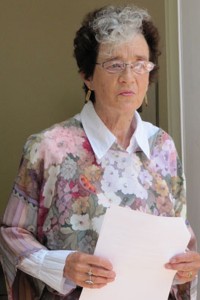Jeanette Kohl appointed to the Scientific Advisory Board of the Kunsthistorisches Institut in Florenz
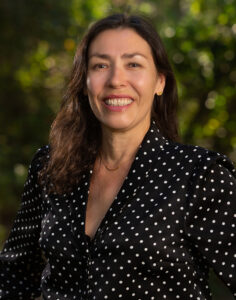 The Kunsthistorisches Institut in Florenz is a research institute of the Max Planck Society dedicated to the history of art and architecture. Its main areas of focus are the art and visual culture of Italy, Europe and the Mediterranean sphere in the global context. The scientific advisory board is composed of internationally respected academics from Germany and abroad. Its task is to evaluate the Institute’s academic activities on a regular basis.
The Kunsthistorisches Institut in Florenz is a research institute of the Max Planck Society dedicated to the history of art and architecture. Its main areas of focus are the art and visual culture of Italy, Europe and the Mediterranean sphere in the global context. The scientific advisory board is composed of internationally respected academics from Germany and abroad. Its task is to evaluate the Institute’s academic activities on a regular basis.
Read more at https://www.khi.fi.it/en/aktuelles/index.php

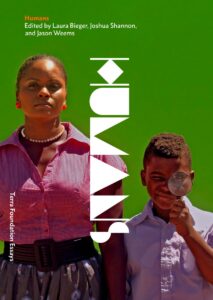 Humans are organisms, but “the human being” is a term referring to a complicated, self-contradictory, and historically evolving set of concepts and practices. Humans explores competing versions, constructs, and ideas of the human being that have figured prominently in the arts of the United States. These essays consider a range of artworks from the colonial period to the present, examining how they have reflected, shaped, and modeled ideas of the human in American culture and politics. The book addresses to what extent artworks have conferred more humanity on some human beings than others, how art has shaped ideas about the relationships between humans and other beings and things, and in what ways different artistic constructions of the human being evolved, clashed, and intermingled over the course of American history. Humans both tells the history of a concept foundational to US civilization and proposes new means for its urgently needed rethinking.
Humans are organisms, but “the human being” is a term referring to a complicated, self-contradictory, and historically evolving set of concepts and practices. Humans explores competing versions, constructs, and ideas of the human being that have figured prominently in the arts of the United States. These essays consider a range of artworks from the colonial period to the present, examining how they have reflected, shaped, and modeled ideas of the human in American culture and politics. The book addresses to what extent artworks have conferred more humanity on some human beings than others, how art has shaped ideas about the relationships between humans and other beings and things, and in what ways different artistic constructions of the human being evolved, clashed, and intermingled over the course of American history. Humans both tells the history of a concept foundational to US civilization and proposes new means for its urgently needed rethinking.
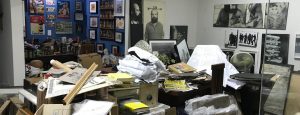
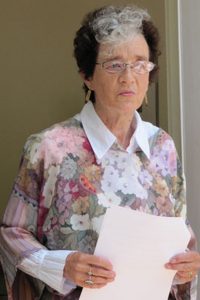
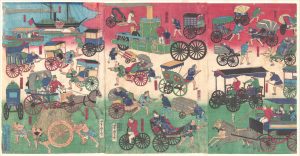
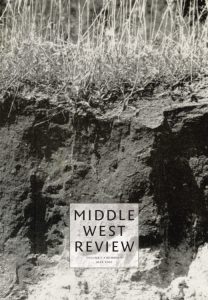 With great pleasure, the John E. Miller Prize Committee announces the winner of the 2020 prize for best article or essay to appear in the journal Middle West Review during the 2020 calendar year. Narrowing down the field of contenders to one top choice was daunting, given the high quality of scholarship and intriguing arguments present in all the articles under consideration. Jason Weems’ contribution, “Holding the Soil: A Note on the Conservation of Midwesternness,” went beyond those parameters, however. Weems, an art historian, employs innovative sources to arrive at a nuanced analysis about the widespread notion of midwestern identity as being rooted in the soil. Weems employs the most common depictions of midwestern landscapes in the 19th century, plat books, to identify midwestern identity of the time as resting on widespread availability of land rather than on the soil itself. Weems posits this as an economic relationship in which short-term exploitation of the soil was a far more typical experience of Midwesterners than long-term attachment. This “frontier mentality,” as Weems describes it, lasted only as long as the frontier itself. Subsequent generations of Midwesterners looked upon the landscape with different eyes. Weems argues that “it is probably no coincidence that Midwesterners became aware of the eroding status of their landscape in the same moment that they also saw the need to reorient regional identity.” (p. 132) The signature Midwestern trait of rootedness to the soil, Weems explains, came from second-generation residents who abandoned their frontier mentality – a horizontal orientation – for a deeper, vertical rootedness in place. Weems contrasts the horizontal plat book images, which appeal to the eye but also to the economic value of the land, with vertical photographs of the soil taken in the 1930s, showing soil depth and health, agricultural potential, but also fragility. The John E. Miller Prize Committee deemed Weems’ analysis a substantial contribution to the historical understanding of midwestern identity formation and proudly bestows the 2020 Prize on Jason Weems’ Fall 2020 article, “Holding the Soil.”
With great pleasure, the John E. Miller Prize Committee announces the winner of the 2020 prize for best article or essay to appear in the journal Middle West Review during the 2020 calendar year. Narrowing down the field of contenders to one top choice was daunting, given the high quality of scholarship and intriguing arguments present in all the articles under consideration. Jason Weems’ contribution, “Holding the Soil: A Note on the Conservation of Midwesternness,” went beyond those parameters, however. Weems, an art historian, employs innovative sources to arrive at a nuanced analysis about the widespread notion of midwestern identity as being rooted in the soil. Weems employs the most common depictions of midwestern landscapes in the 19th century, plat books, to identify midwestern identity of the time as resting on widespread availability of land rather than on the soil itself. Weems posits this as an economic relationship in which short-term exploitation of the soil was a far more typical experience of Midwesterners than long-term attachment. This “frontier mentality,” as Weems describes it, lasted only as long as the frontier itself. Subsequent generations of Midwesterners looked upon the landscape with different eyes. Weems argues that “it is probably no coincidence that Midwesterners became aware of the eroding status of their landscape in the same moment that they also saw the need to reorient regional identity.” (p. 132) The signature Midwestern trait of rootedness to the soil, Weems explains, came from second-generation residents who abandoned their frontier mentality – a horizontal orientation – for a deeper, vertical rootedness in place. Weems contrasts the horizontal plat book images, which appeal to the eye but also to the economic value of the land, with vertical photographs of the soil taken in the 1930s, showing soil depth and health, agricultural potential, but also fragility. The John E. Miller Prize Committee deemed Weems’ analysis a substantial contribution to the historical understanding of midwestern identity formation and proudly bestows the 2020 Prize on Jason Weems’ Fall 2020 article, “Holding the Soil.” 